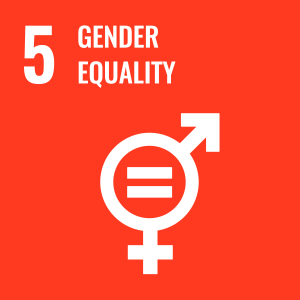University of Surrey to lead landmark review into NHS Ethnicity Pay Gap
The University of Surrey has been commissioned by the NHS Race and Health Observatory to lead a major independent review into ethnicity pay gaps across the NHS in England.

This will be the first comprehensive review of its kind, exploring differences in pay, career progression, pension contributions and overall earning potential between staff from different ethnic backgrounds. The 18-month project will run from July 2025 to December 2026.
Drawing on extensive expertise in workplace equity and pay structures, Surrey’s research team will work alongside national partners to investigate the underlying causes of any pay disparities and produce evidence-based recommendations for reducing or eliminating unjustified inequalities.
Professor Carol Woodhams, Professor of Human Resource Management at the University of Surrey, will co-lead the review, with input on data analysis from Dr Nicola Burton-Brown and Prof Giuseppe Moscelli at the University of Surrey, alongside Professor (Hon.) Doyin Atewologun, CEO of leadership and inclusion consultancy Delta.
Professor Carol Woodhams, Professor of Human Resource Management, University of Surrey, said:
“We are proud to be leading this important work in collaboration with the RHO and national partners. We’ve researched workplace pay gaps for many years, so we’re pleased to support this vital review. It’s a chance to uncover the root causes of ethnic disparities in NHS pay and progression, and to help drive meaningful, evidence-based change.”
Owen Chinembiri, Assistant Director, Workforce, NHS Race and Health Observatory, said:
“Black, Asian and ethnic minority staff continue to face hurdles when it comes to career progression in the NHS. Even though there have been some improvements over the past few years, this has been slow, patchy and frustrating for ethnic minority staff who have been impacted for far too long.
“Tackling these inequalities is now an urgent matter that requires our collective understanding and action. This research will identify areas where there are unwarranted gaps in pay and career progression, as well as come up with impactful recommendations that can be implemented by the NHS to reduce and, ultimately, eliminate these inequalities.”
Although some trusts voluntarily report on earnings, currently, ethnic pay gap reporting is not mandatory.
Professor Doyin Atewologun, CEO of leadership and inclusion consultancy Delta, said:
“Delta is pleased to collaborate with the University of Surrey, the RHO, and other partners on this important work. We will draw on our extensive experience in qualitative, intersectional research across health and other sectors, to contribute to providing a deeper understanding of ethnicity pay disparities and recommending sustainable, practical actions to help address them.”
The research follows the 2020 Mend the Gap: The Independent Review into Gender Pay Gaps in Medicine in England, commissioned by the Department of Health and Social Care, which highlighted significant pay inequalities by gender in the medical workforce and resulted in recommendations that have shaped a work programme to reduce the gap.
Within the NHS, each of the nine Agenda for Change (AfC) pay bands has a number of pay points with staff typically progressing to the next pay point annually until reaching the maximum pay band.
Current earnings, earnings over career timespans and roles using both quantitative and qualitative data and insight will be explored. Various aspects of established methodologies used to analyse statutory gender pay gap reporting will also be utilised.
Professor Habib Naqvi, Chief Executive, NHS Race and Health Observatory, said:
“This review is long overdue and we’re delighted to be working with the University of Surrey and others on undertaking it. For too long, large proportions of Black, Asian and ethnic minority staff remain stuck, often stagnating for years, in lower pay bands within the NHS, whilst other members of staff are supported to move swiftly through those same ranks. Tackling pay and progression gaps will help organisations across the NHS to create an inclusive environment for all staff , ensuring employees from different ethnic backgrounds have peace of mind that they are getting paid according to their skillset.
“Pay gaps are unjust, unfair and a public health challenge. We know a motivated, included and valued workforce delivers high-quality patient care, increased patient satisfaction and better patient safety. When operating at equal levels, doing equal roles, staff must receive the equal pay to which they are entitled, and should have equal opportunities for progression.”
There are a limited number of comprehensive studies into ethnic pay disparities with some earlier reports highlighting no significant pay gap between average basic pay of White NHS staff in comparison to Black and ethnic minority staff.
Danny Mortimer, Chief Executive of NHS Employers, said:
“NHS Employers welcomes this much needed review by the NHS Race and Health Observatory and Carol Woodhams into ethnicity pay gaps and career progression for ethnic minority staff working across the NHS in England.
“The delivery of a better NHS and a healthier nation requires the best use of all the talents in our workforce: we cannot jeopardise this by the presence of inequalities and racism in our workplaces.
“The findings of this review will help us to work with our trade union colleagues to improve pay system and contract design, and will help us all to support NHS organisations across England to take action to address the issues identified by this crucial work.”
Although some NHS trusts voluntarily publish ethnicity pay gap data, there is currently no requirement to do so. The final report, due in December 2026, will offer clear, actionable recommendations to reduce disparities and promote fairer progression for ethnic minority staff.
The research will also contribute to a wider programme of work by the NHS Race and Health Observatory to address workforce inequalities.
[ENDS]
Notes to editors
- For media inquiries or to speak to Professor Woodhams, please contact mediarelations@surrey.ac.uk
- Ongoing annual NHS workforce data, compiled over several, years frequently show large proportions of staff from Black, Asian and minority ethnic backgrounds are less likely to occupy senior positions and remain in lower pay bands. For International Medical Graduates (IMG’s), anecdotal evidence has revealed a lack of progression when compared to White doctors, regardless of experience and additional training.
- Almost half, 49.6 per cent, of doctors in the NHS are from ethnic minority backgrounds, whilst 38.1 per cent of all nurses and health visitors are from diverse backgrounds. Along with doctor and dentists, senior directors are not included in the AfC pay system.
Independent review into gender pay gaps in medicine in England - GOV.UK
- NHS Race and Health Observatory
The NHS Race and Health Observatory, an independent body hosted by the NHS Confederation and supported by NHS England and the Department of Health and Social Care, provides evidenced recommendations and practical solutions with regards to long-standing inequalities affecting ethnic minority patients, communities and the healthcare workforce.
Its work includes supporting the creation of a more efficient, agile, and technologically enabled NHS that will deliver care closer to people and further upstream. The Observatory’s current areas of focus include maternal and neonatal outcomes, sickle cell disease, mental health, data and digital inclusion – as well as examining equity in genomics and precision medicine, and in the healthcare workforce. www.nhsrho.org
Related sustainable development goals


Featured Academics
Media Contacts
External Communications and PR team
Phone: +44 (0)1483 684380 / 688914 / 684378
Email: mediarelations@surrey.ac.uk
Out of hours: +44 (0)7773 479911

